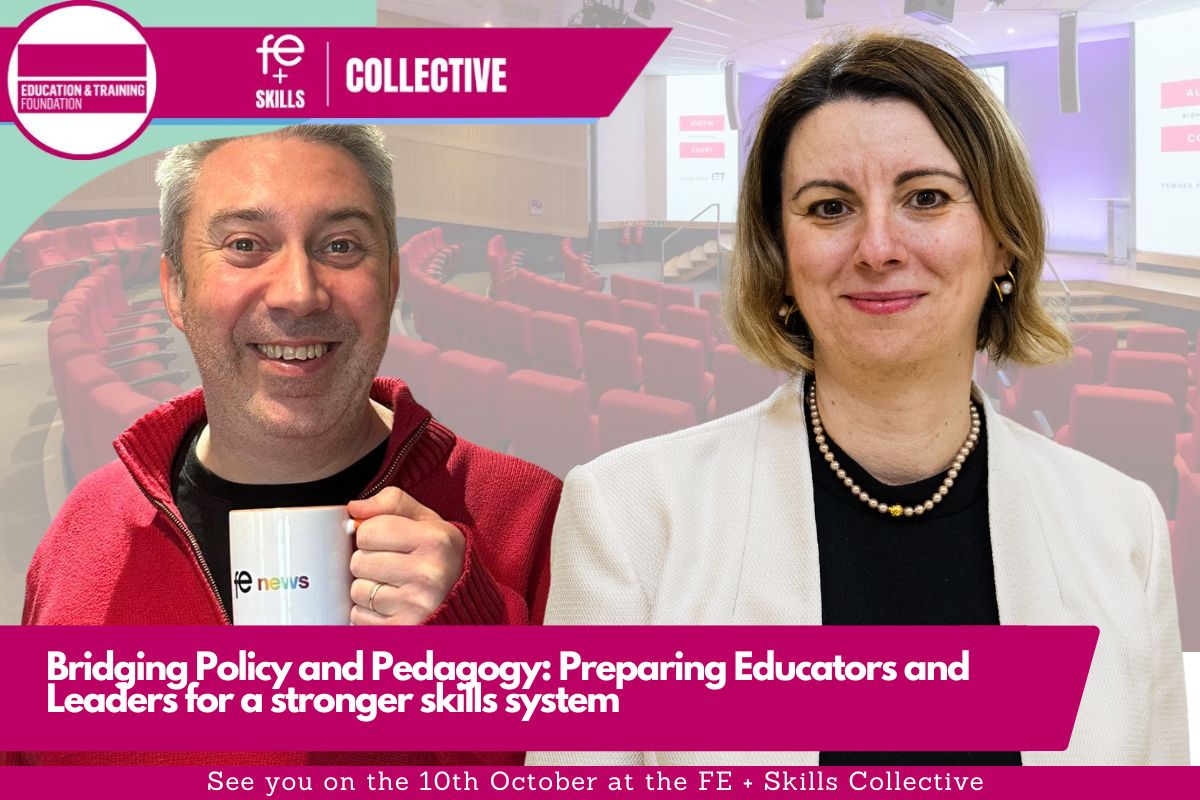Green Jobs, Apprenticeships and Higher Technical Education

From Sentiment to Action
No one would publicly disagree with the sentiment that the Government should forge a Green Recovery post-Covid and that apprenticeships and higher technical education should make a major contribution to the green jobs agenda. The trouble is that sentiment is one thing, but agreeing action and priorities and ensuring the system delivers is something else.
The “Greenist” of Apprenticeships
There is no better example of a green job, perhaps, than the Ecologist Level 7 Degree Apprenticeship. IfATE defines the Apprenticeship as “studying the relationship between living things and their environment to help resolve potentially conflicting demands between economic development and the environment”.
Prior to the pandemic, with a forecast overspend of the Apprenticeship Programme Budget, key advocacy organisations in the further education sector were arguing for restricting the ability of employers to use the Apprenticeship levy on level 6 and 7 programmes and to prioritise Apprenticeships for young people. If Government had accepted such arguments then it would have stopped or severally restricted funding for the Ecologist Degree Apprenticeship.
Bizarrely, when searching on Gov.UK ‘Find Apprenticeship Training ’ despite the Ecologist Apprenticeship being approved in June 2019, no training provider was listed as delivering the standard: in contrast 507 were listed as delivering customer service practitioner (level 2) apprenticeships. Why? Is the Ecologist standard right, is its funding band appropriate, has there been insufficient funding to support SMEs to use the standard?
The ecologist example may be considered by some to be a niche Apprenticeship, but the same argument can be applied more broadly. Have we the right Apprenticeships, higher technical education and level 6 and 7 programmes to deliver the Green Jobs agenda, is funding appropriate, do we have a training provider base able to respond and who is accountable for ensuring the system delivers this agenda?
Funding Priorities
We also have an issue of prioritisation. Many have argued for apprenticeships to prioritise young people, but if Government is to deliver on the Net Zero carbon economy, re-skilling the existing workforce for Net Zero roles is where the focus is needed. Apprenticeships at a range of levels and higher technical and higher and professional education provision will also be needed to deliver the skills needed for a Net Zero economy.
Government will also need to balance other competing priorities. The Green Jobs agenda is important, but so too is ensuring that employers can use apprenticeships to train the nurses, police officers and social workers society needs. With a substantial fall in apprenticeship numbers funding is not currently an issue, but hopefully with a rapid economic recovery in 12 to 18 months it will be.
During this period, the Government, working through IfATE, needs to determine which Apprenticeships make the greatest impact on productivity, the delivery of public sector services, social mobility and the Net Zero agenda. It must also work out which Apprenticeships should be incentivised through the funding system and by definition, which should be disincentivised.
Such an approach would not represent central planning or a ‘Whitehall knows best’ philosophy. Employers would still develop standards and decide which Apprenticeships and training programmes to use. However, the Government, representing society would have a more active role in ensuring the Apprenticeships delivered reflected societal and economic priorities.
Standards Fit for Purpose
Apart from funding we must also ensure that existing Apprenticeship standards are fit for purpose i.e., could they be made greener for the Net Zero agenda? Are all key Net Zero occupations covered by Apprenticeship standards? This again calls for intervention from IfATE. Rather than having a passive or agnostic role in determining which occupations need standards developing (and delivering) IfATE needs to, and I believe is, fostering a hands-on proactive approach. It also calls for a partnership approach working with employers, experts, professional bodies, regulators and training providers.
Recommendation 1
The Government, through DBEIS and DfE/IfATE, should clearly identify and financially prioritise Apprenticeship Standards that £ for £ make the largest contribution to the Net Zero, productivity, public services and social mobility agendas.
Recommendation 2
IfATE should undertake a review of existing Occupational Standards, identify where Standards need to be revised to contribute to the Net Zero economy and where new Standards need to be developed to support employers, PSRBs and training providers to develop them.
Recommendation 3
We need an independent and objective annual review of how Apprenticeship and Technical Education at all levels are delivering and can contribute to the productivity, public sector services, social mobility and green economy agendas.
Adrian Anderson, Chief Executive, University Vocational Awards Council (UVAC)
Racing to Net Zero – the role of post-16 education and skills |
|
|
The UK needs comprehensive jobs and skills plan to successfully support and drive the transition to Net Zero. This is the conclusion of Campaign for Learning on publishing a new collection of expert views – Racing to Net Zero – the role of post-16 education and skills, This pamphlet brings together experts on Net Zero and post-16 education, skills and employment policy. The sixteen contributors offer real insights about how post-16 education and skills policy can support the race to Net Zero here in the UK. Contributors to Racing to Net Zero: |
|
| Shaun Spiers, Green Alliance | Greening the Economy, Greening the Environment |
| Stephen Evans, Learning and Work Institute | A more ambitious Net Zero ‘Economic, Jobs and Skills’ Plan |
| Paul Nowak, TUC | Workers, Skills and the Net Zero Economy |
| Duncan Brown, Emsi | The Demand for Green Jobs and Green Skills |
| Ewart Keep, University of Oxford | Labour Market Intelligence for Green Jobs and Green Skills |
| Jane Hickie, AELP | Filling Green Jobs with Level 2+ Apprenticeships |
| Calum Carson, ERSA | Filling Green Jobs through Employment Support Schemes |
| David Hughes, Association of Colleges | FE Colleges, Upskilling, Reskilling and Net Zero |
| Susan Pember, HOLEX | Adult and Community Education and Net Zero |
| Nick Hillman, HEPI | Universities and Net Zero |
| Bill Watkin, Six Form Colleges Association | 16-18 Education and Net Zero |
| John Widdowson, Former FE Principal | 16-18 Level 3 T Levels and Net Zero |
| Rebecca Conway, Federation of Awarding Bodies | Net Zero and the ‘Level 3 and Below’ Curriculum |
| Charlotte Bonner, Education and Training Foundation | Education for Sustainable Development and the FE Workforce |
| Adrian Anderson, UVAC | Green Jobs, Apprenticeships and Higher Technical Education |
| Victoria Hands and Stephen Peake, The Open University | Education for Sustainable Development in Higher Education |










Responses